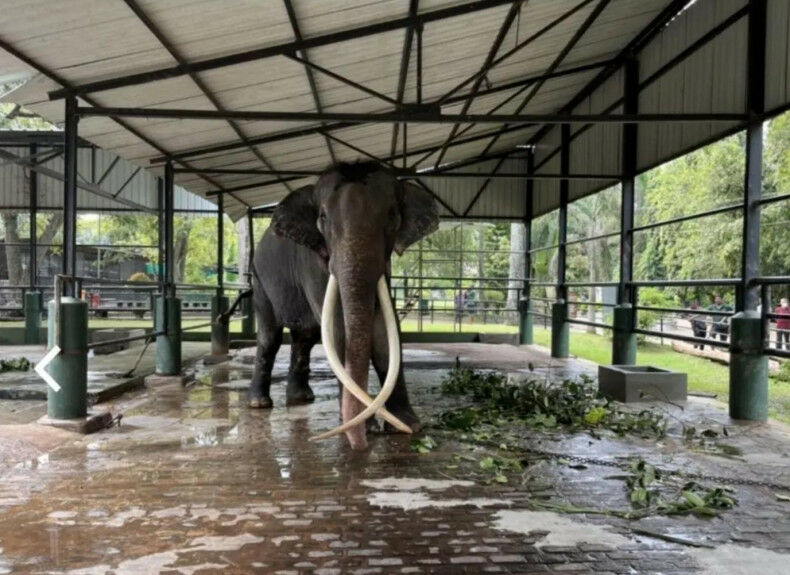Trunk-ated Stay: Thailand’s push to bring home abused elephant from Sri Lanka continues

The Thai government continues to explore ways to repatriate Sak Surin, one of three elephants gifted to Sri Lanka by Thailand back in 2001. This follows reports last year by an animal rights organisation that the elephant had been subjected to mistreatment by its handlers. While the government is aware of Sak Surin’s situation, transporting the elephant back to Thailand has proven problematic due to its size and the nature of its injuries.
Thai Environment and Natural Resources Minister Varawut Silpa-archa explained that the initial plan was to use a C-130 transport aircraft to bring Sak Surin home. However, this idea was abandoned when it became evident that the elephant’s enclosure would not fit in the cargo hold of the plane, which was originally designed to transport military equipment such as arms and tanks.
Another option considered by the government was to send a ship to retrieve Sak Surin. Unfortunately, this was also deemed unsuitable as the two-week journey would be too long for an injured elephant. Varawut stated that the ministry is now collaborating with the Foreign Affairs Ministry to find a suitable solution for Sak Surin’s repatriation.
The elephant’s situation has raised concerns since it was gifted to Sri Lanka as a goodwill ambassador for Thailand back in 2001. Since then, Sak Surin has changed hands several times.
Up until recently, it resided at the Aluthgama Kande Viharaya temple in the south of Sri Lanka. According to Rally for Animal Rights and Environment (Rare), a Sri Lankan animal protection organisation, the elephant’s limbs were restrained by chains at the temple, causing injuries all over its body.
Towards the end of last year, Rare urged the Thai government to bring Sak Surin back to Thailand for urgent medical treatment. Within a week of the report’s publication, the government began planning its repatriation, but the plan was temporarily halted due to Sri Lanka being in the midst of a General Election.
As the search for solutions continues, it highlights the complex challenges faced by governments and animal welfare organisations when attempting to tackle issues of animal mistreatment, particularly involving elephants which are large, sensitive animals that require specialised care and handling.
The Thai government’s ongoing efforts to repatriate Sak Surin demonstrate their commitment to animal w and their recognition that this case holds both symbolic and diplomatic importance. The successful return of Sak Surin would not only be an important milestone for Thailand and its efforts to protect its national symbols but also set a precedent for cross-border cooperation on animal welfare issues.
Despite the logistical challenges encountered so far, the continued collaboration between the Thai Environment and Natural Resources Ministry, the Foreign Affairs Ministry, and local animal protection organisations such as Rare, offers hope that an appropriate solution for Sak Surin’s repatriation and ongoing care will ultimately be found.
Latest Thailand News
Follow The Thaiger on Google News:


























